Former Attorney Becomes Cheongsam Craftswoman
 |
| Song Fei sews a pankou to a cheongsam at her cheongsam shop in Chengdu City, Southwest China's Sichuan Province, on August 13. [CNSPHOTO/Wang Lei] |
"This fabric is called xiangyunsha (gambiered Guangdong gauze)," said Song Fei, while she introduced a traditional cheongsam to customers. "Dyed with pure plant extracts and unpolluted river mud, the time-honored silk drapery is dubbed 'soft gold' in the textile industry."
To everyone's surprise, the knowledgeable Song — who has incredible insights into cheongsam, a body-hugging one-piece Chinese dress for women, is a lawyer who has practiced law for 10 years in Chengdu City, Southwest China's Sichuan Province.
Song loves traditional Chinese culture and has always had a fondness for cheongsam. In 2017, she ceased working as a lawyer and traveled to Suzhou, one of the famous embroidery cities in China, to learn design and handicraft skills of cheongsam and traditional costumes, becoming a cheongsam designer.
At first, Song's family and friends were not optimistic about her choice to switch from a distinguished career to an artistic field.
Knowing little about clothing, Song learned from scratch, which was a huge challenge for her. "The pain was unthinkable, but since I had chosen that profession, I had to stick to it. I want a career that I truly enjoy," said Song.
Song returned to Chengdu with new skills and creative passion in 2019 and founded her design brand, hoping to pass on the traditional culture and aesthetics to more people.
"To be honest, compared with my previous job, this one is harder and leaves me with much greater financial pressure. But my sense of satisfaction is beyond comparison when my works are recognized and appreciated," said Song, who added that it takes at least one month to create a cheongsam.
After more than a year in business, Song gradually gained fans by sharing her creations on social media platforms and at marketing events.
"Traditional cheongsam are one-piece tailored dresses of Chinese origin that require making with natural materials by hand. However, modern cheongsam are often made with artificial fabrics and produced by machine," Song said. "In the face of rapid social and economic changes, traditional cheongsam are receiving less attention due to the popularity of mass-produced, assembly-line gowns."
To save the beauty of traditional culture, Song wants to integrate time-honored handicrafts into people's daily lives, believing that traditional culture should not be the territory of museums.
"Lawyers use laws to help other people in need while a cheongsam designer passes on tradtional Chinese culture. Both are meaningful types of work with social responsibilities," said Song.
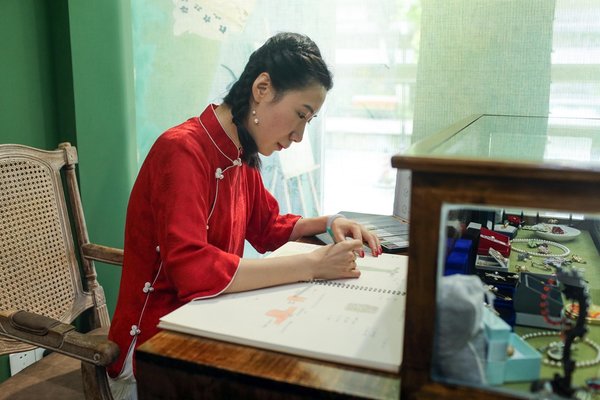 |
| Song Fei sketches a design for a cheongsam at her shop in Chengdu City, Southwest China's Sichuan Province, on August 13. [CNSPHOTO/Wang Lei] |
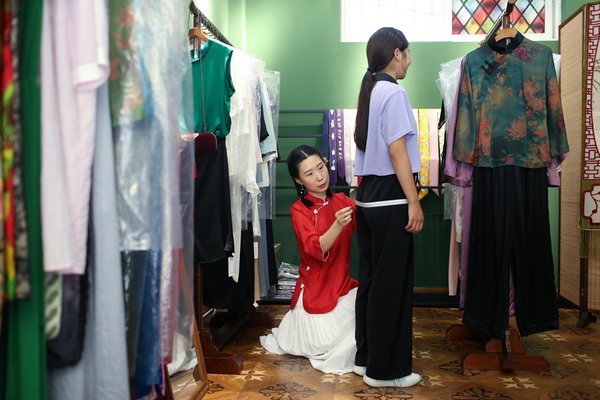 |
| Song Fei takes the measurements of a customer at her shop in Chengdu City, Southwest China's Sichuan Province, on August 13. [CNSPHOTO/Wang Lei] |
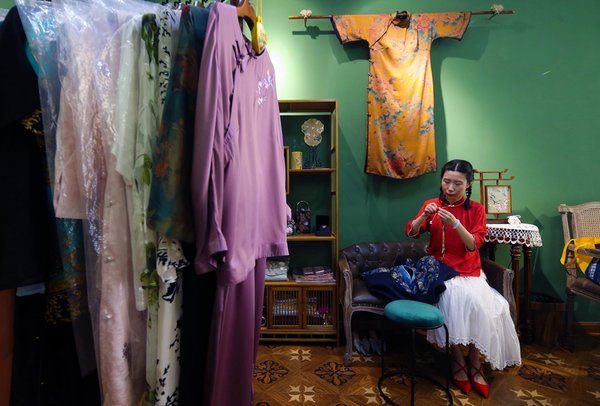 |
| Song Fei stitches a pankou to a cheongsam at her shop in Chengdu, Southwest China's Sichuan Province, on August 13. [CNSPHOTO/Wang Lei] |
(Source: CNSPHOTO/Translated and edited by Women of China)
Please understand that womenofchina.cn,a non-profit, information-communication website, cannot reach every writer before using articles and images. For copyright issues, please contact us by emailing: website@womenofchina.cn. The articles published and opinions expressed on this website represent the opinions of writers and are not necessarily shared by womenofchina.cn.

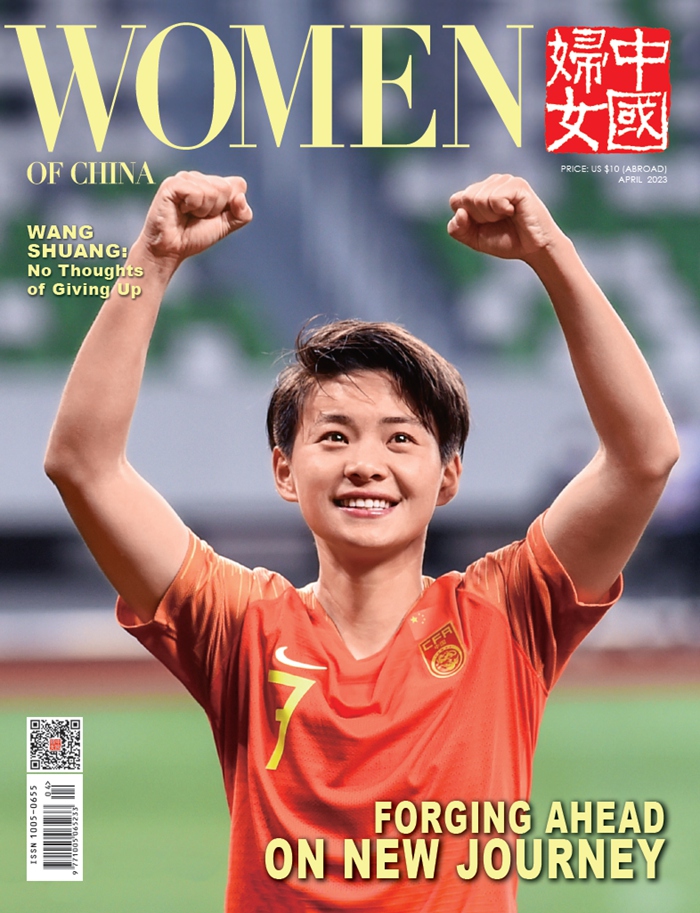

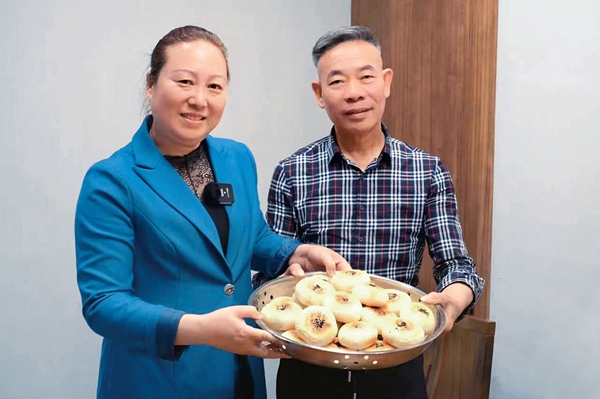
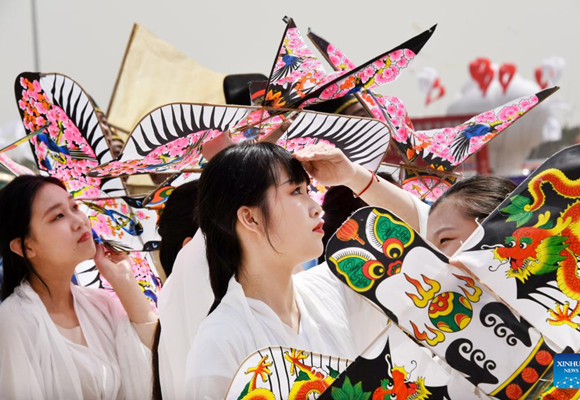



 WeChat
WeChat Weibo
Weibo 京公网安备 11010102004314号
京公网安备 11010102004314号